Logical Reasoning Geometry Worksheets for Ages 4-6
5 filtered results
-
From - To
Unlock your child's potential with our "Logical Reasoning Geometry Worksheets for Ages 4-6". Specifically crafted for young minds, these worksheets introduce children to fundamental geometry concepts through engaging and fun activities. From identifying shapes to understanding spatial relationships, each worksheet is designed to enhance logical thinking and problem-solving skills. With clear instructions and captivating visuals, kids remain motivated and excited to learn. Perfect for classroom or at-home practice, these worksheets lay the groundwork for advanced math skills and cognitive development. Boost your child's confidence and math proficiency with Kids Academy's expertly designed resources.
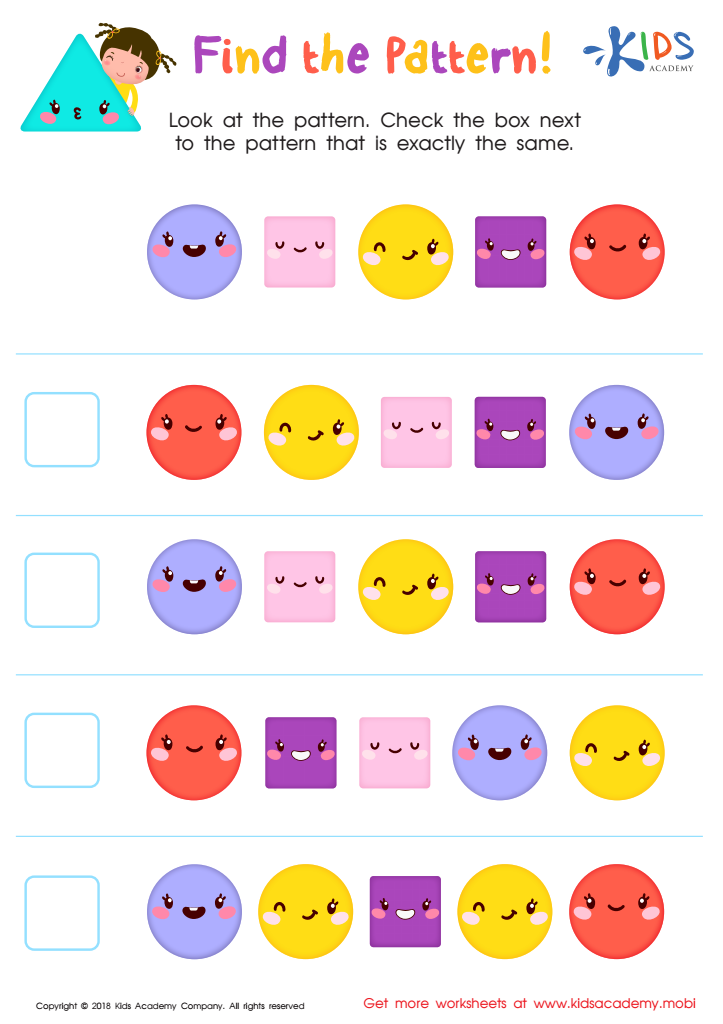

Find the Pattern Worksheet
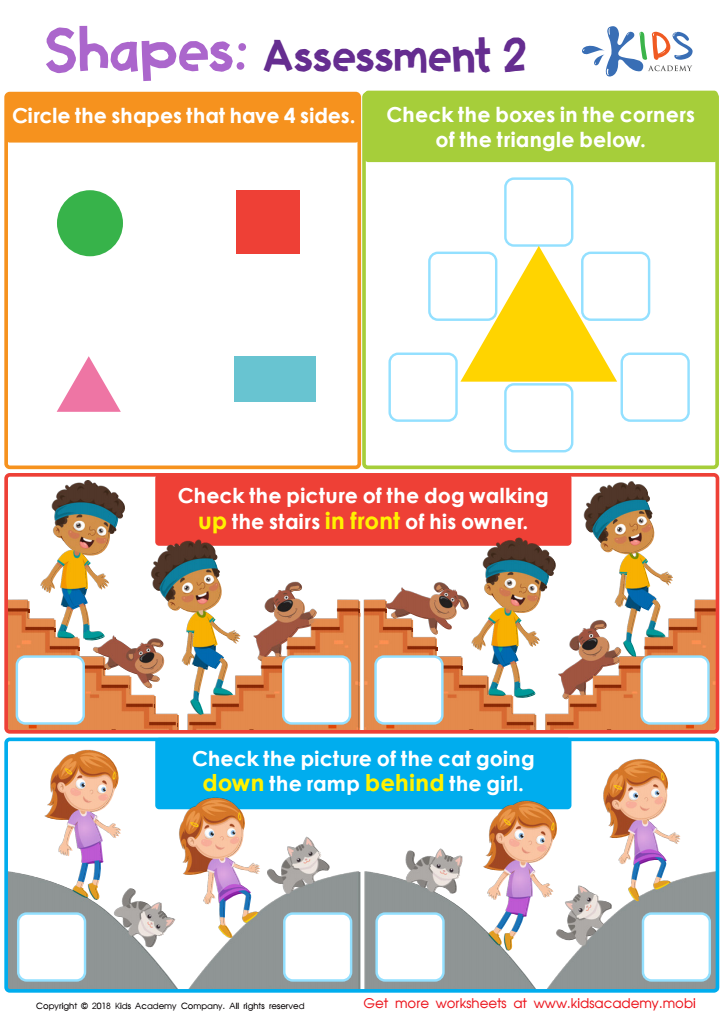

Shapes: Assessment 2 Worksheet
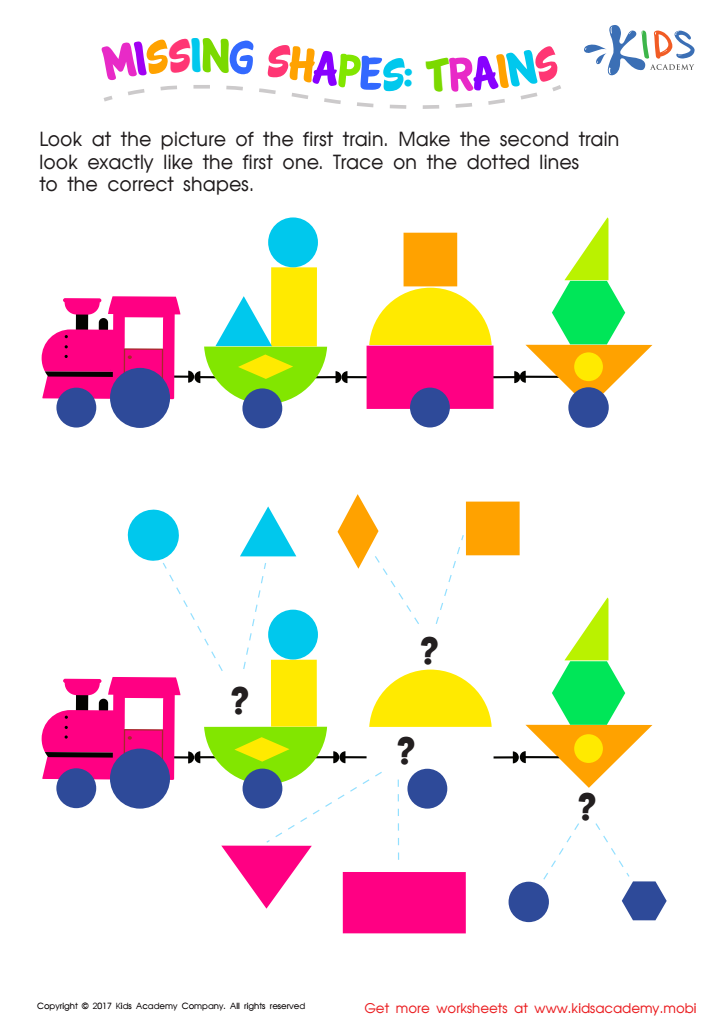

Missing Shapes: Trains Worksheet
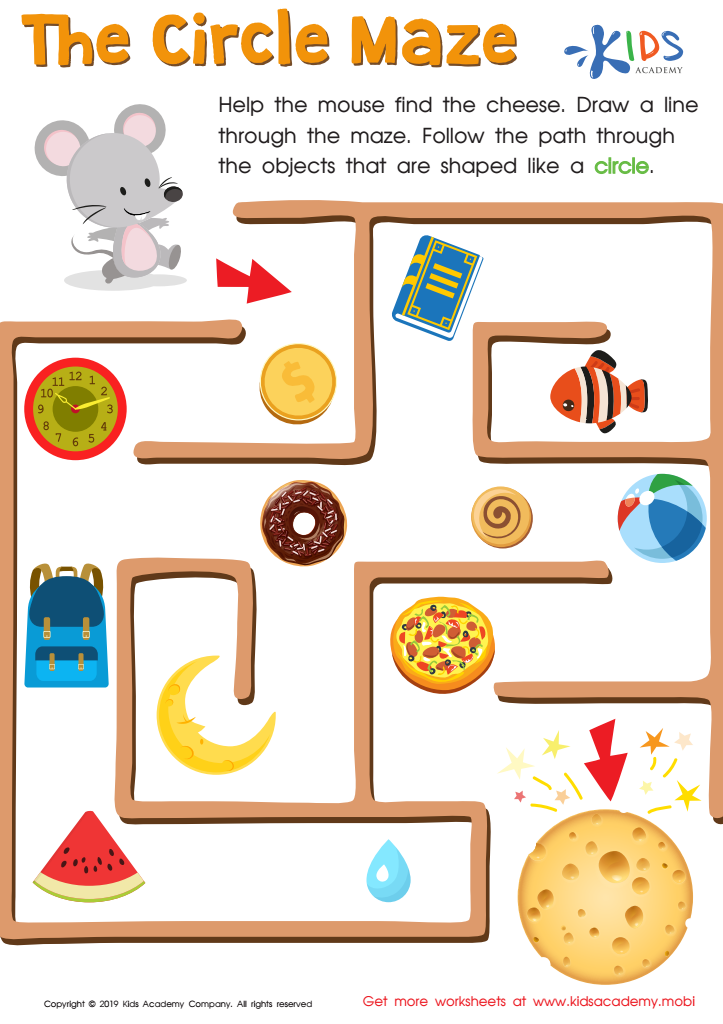

The Circle Maze Worksheet
Logical reasoning and geometry are foundational skills that benefit children significantly, starting as early as ages 4-6. At this age, children's brains are incredibly receptive to learning shapes, patterns, and spatial awareness—all essential components of geometry. Integrating logical reasoning and geometry into early education nurtures their problem-solving skills, critical thinking, and ability to make sense of the world around them.
Introducing geometric concepts helps children identify shapes, understand spatial relationships, and recognize patterns. These skills are not restricted to math but cross into everyday life situations; for instance, fitting puzzles together or organizing objects by size and shape enhances their spatial reasoning. Furthermore, encouraging logical reasoning gives children tools to approach problems systematically, fostering resilience and adaptability when faced with challenges.
It also fosters language development as kids learn to describe shapes, positions, and movements, enhancing both their vocabulary and communication skills. These early experiences lay the groundwork for higher-level math and science education, where geometric and logical reasoning become increasingly critical.
Both parents and teachers benefit from noticing the excitement and confidence mathematical explorations can instill in young children. By prioritizing geometry and logical reasoning at an early stage, we lay a solid foundation for the development of well-rounded, inquisitive, and analytical thinkers.
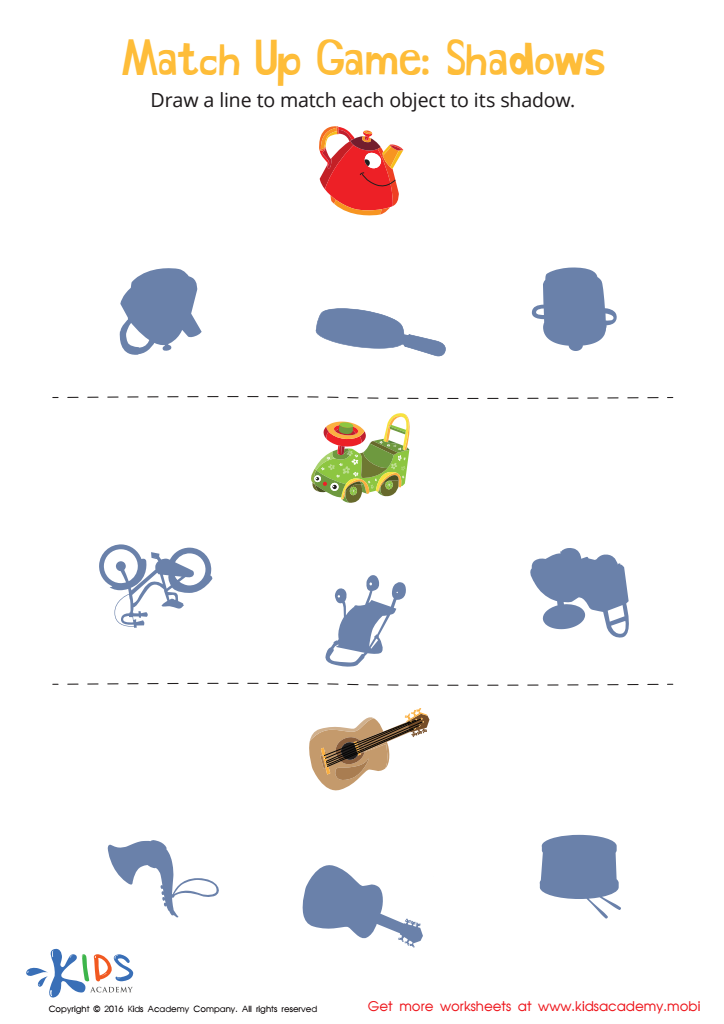
 Assign to My Students
Assign to My Students





















